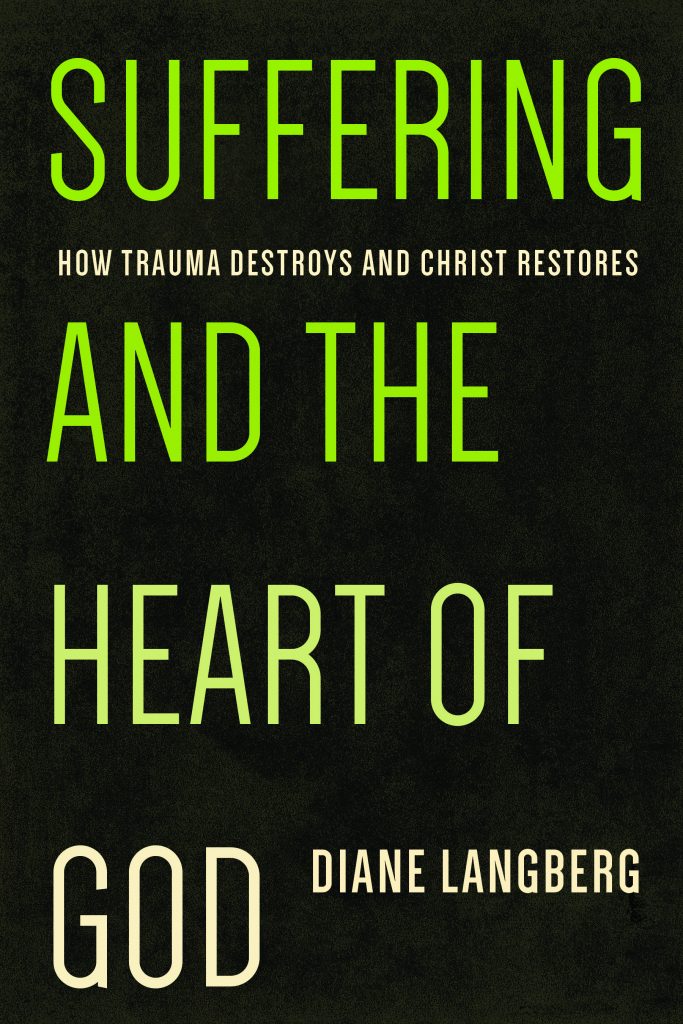Understanding Narcissism
Narcissism at its heart is self-absorption, a preoccupation with image, acting entitled, demanding, and generally uninterested in the feelings of others. All of you who have parented or treated adolescents will hear a familiar ring to these characteristics, which is why I want us to differentiate it from narcissism as the result of immaturity due to age or developmental stage or even something like trauma. Such narcissism has elasticity, is malleable, can be worked with, and is laid aside as maturity comes. For those of you who have raised kids or treated teens, I am sure you have seen that process—where a self-absorbed, demanding teen turns into a gracious, thoughtful adult as time goes on. You also know the experience of interacting with a demanding, seemingly selfish teen who then turns around and is utterly winsome with you or totally unselfish with a peer. Narcissism, like most things we deal with, is on a continuum, and so we encounter flavors of it, strong doses of it, patterns of it over a lifetime, and we also see the more rigid, enduring, shaping-all-aspects-of-life characteristics of a personality disorder. So basically the continuum goes from an intermittent flavor of narcissism all the way across to Narcissistic Personality Disorder, that rigid pattern that presents in all contexts. It is important to recognize nuances or we inappropriately label people, often as a result of our own frustration and annoyance with them, rather than a careful, clinical study and understanding of what we are dealing with. At the same time it is important to note that several studies have shown an increase in narcissism in the US. Some studies suggest that sub-clinical levels of narcissism have risen among college students since the 1970s. Many point to cultural trends that nurture characteristics like entitlement, materialism, and an expectation of being free from suffering, which would seem to breed narcissism in our youth. Such studies are controversial, and others show conflicting data. It is at the least something worth watching in the literature.Narcissistic Personality Disorder
A study conducted at the National Institute of Health suggested that 6.2 percent of Americans suffered from Narcissistic Personality Disorder.1 Other estimates across studies range from 2 to 15 percent in clinical samples or less than 1 percent in the general population. Most experts agree that males dominate the arena, with estimates of 50 to 80 percent. However, women can certainly have the disorder, and I have encountered them in my practice—though in keeping with the data, at a far lesser rate. The core characteristics of this disorder are grandiosity, lack of empathy, and an insatiable need for admiration and approval. To put this less clinically, the disorder involves these enduring attitudes: “I am bigger, better, and far more superior to you or anyone else; I have no understanding of or interest in grasping my impact on you except insofar as you can feed my ego or support the beliefs I have in myself.” The DSM-IV says this pattern is evidenced by early adulthood and is apparent across contexts—a quality of all personality disorders. Just to be certain we all know what this disorder entails, let’s run down the diagnostic criteria as listed in the DSM:- Has a grandiose sense of self often seen in an exaggeration of achievements and abilities
- Is preoccupied with fantasies of unlimited success, power, brilliance, and love
- Believes he is special and can only be understood by others who are special (an important point as we consider systems)
- Demands excessive admiration
- Feels entitled and expects favors and compliance; allows no disagreement and demands “submission” (note the biblical word)
- Is interpersonally exploitive; uses others to achieve his ends; feeds off others
- Lacks empathy; cannot identify with others’ feelings
- Is envious of others or believes they are envious of him because of his superiority or specialness
- Is arrogant, haughty, proud in behavior and attitudes2
Narcissists and Systems
When you really hear and absorb the characteristics listed above, you wonder how in the world an individual, a church, an organization, or an entire nation can get drawn into a relationship with such a person—and go into it thinking it is simply going to be wonderful! Just think about the first characteristic listed: grandiosity. Who wants to be around that? It is puffed up and arrogant, full of itself, right? That is not attractive to most of us at all. What pulls us in? Someone with Narcissistic Personality Disorder is an illusionist. He is an expert in masquerade, a Pied Piper. The Seduction of Eva Volk by C. D. Baker is a fascinating novel about a Christian family in Germany pre-World War II. They are desperately seeking hope and healing along with their surrounding culture after the first war, and they are seduced into viewing Hitler as the savior of Germany. He will return honor to Germans who felt shamed by the loss of WWI. He will feed the hungry and assist the poor. He will lift the despair. And indeed he did for some time. He put bread back on the shelves, money in their pockets, and pride in nationality in their hearts. Their seduction and blindness cost them dearly. The author writes, “Eva’s world was broken and fearful and so was she. Then a savior came as an angel of light. So Eva and her world closed their eyes and let him have his way.” The book’s subtitle is “A Novel of Hitler’s Christians.” Clearly the term “Hitler’s Christians” is an oxymoron. So how exactly does such a thing happen? Let’s back up and get the bigger picture and then move in closer in order to understand better how it is that God’s people get seduced into being led by those we would call narcissists. First, a few words about the surrounding culture in this country. I fear we have long been breathing the cultural air and it appears to have put us to sleep (there is that narcotic word again), so we can then be oblivious to the toxins we imbibe on a regular basis. Consider some of the characteristics of our culture. Surely narcissism and its accompanying entitlement are one. Look at the financial world—its greed and its downfall. Look at what happens when someone thinks you are in their way. Look at the growing list of those in power who are using females for their own gratification. From big to little issues, it appears to be my right to get what I want and if you are in my way or I need to “adapt” the rules, so be it. We value materialism, affluence, pleasure, and accomplishment. We have bought houses we cannot afford, goods we cannot afford, and pursue sex without concern for parameters or impact. We expect life to protect us from suffering and if it does not, we sue someone. We expect to get what we want, avoid what we don’t, and have the right to live pain-free existences. Busyness is seen as equal to productivity and productivity and success trump real relationship. We are a nation full of self-absorbed, anxious, and angry souls. And it is clearly not turning out as we expected, hoped, or demanded, which means we are starting to feel desperate—not unlike post-WWI Germans. Like Israel of old, much of the church today has been captivated by the surrounding culture. There are precious and wonderful exceptions to this, but it has infected us for sure. We get intoxicated by personalities, large ministries, charisma, success, large followings, brilliance, and moving oratory. Surely that would make us as the church as vulnerable as the Christians in Hitler’s time to succumb to one who promises us bigger and better and says it is all for God.- Frederick S. Stinson, et al. “Prevalence, Correlates, Disability, and Comorbidity of DSM-IV Narcissistic Personality Disorder: Results from the Wave 2 National Epidemiologic Survey on Alcohol and Related Conditions,” J Clin Psychiatry 69(7) (July 2008): 1033–45, www.ncbi.nlm.nih.gov/pmc/articles/PMC2669224.
- American Psychiatric Association, Diagnostic and Statistical Manual IV, 1994.
Excerpted from Suffering and the Heart of God: How Trauma Destroys and Christ Restores © 2015 by Diane Langberg. Used by permission of New Growth Press. May not be reproduced without prior written permission.







